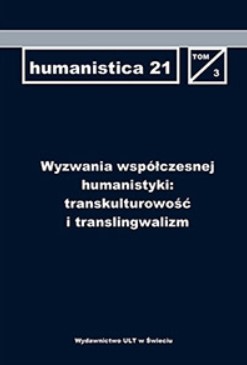Policentryzm w języku i jego relewancja w procesie dydaktycznym na przykładzie języka niemieckiego jako obcego
Polycentrism in language and the relevance in the didactic process on the example of German as a foreign language
Author(s): Marta BieszkSubject(s): Cultural history, Foreign languages learning, Language acquisition
Published by: Wydawnictwo ULT w Świeciu
Keywords: German dialectology; preserving intangible cultural heritage; dialect; language teaching;
Summary/Abstract: The article entitled “Polycentrism in language and the relevance in the didactic process on the example of German as a foreign language” is an analysis of the role of variants of the German language in teaching and aquisition process. Globalisation includes intensification of social (political, economical and cultural) relations on a worldwide level. Globalisation also influences language education on the all levels, so it is necessary to theoretically elaborate a problem of globalisation impact on education. From the other side, a perpective of existence of languages, varieties and local speech variants of the German language disposes to make an effort to implement teaching material which includes the regionalisms. What is interesting, this can be found not only in the standard language. In the article, the author shows these differences with regard to the both: standard language and language for specific purposes. The purpose of language teaching at any stage of education is developing communication competence of learners. If student has a better understanding of how dialect works, he would probably be less inclined to make negative judgments about speakers of different dialects. It is fundamental to understanding the communication. This in turn may indirectly inspire actions aimed at promoting of teaching local dialects, appreciating the regional speech varieties, changing the social perception of dialects by means of the both formal and informal education, and finally – revitalizing the dialects, that are the least known and hardly ever used.
Journal: humanistica 21
- Issue Year: 3/2019
- Issue No: 3
- Page Range: 249-262
- Page Count: 14
- Language: Polish

